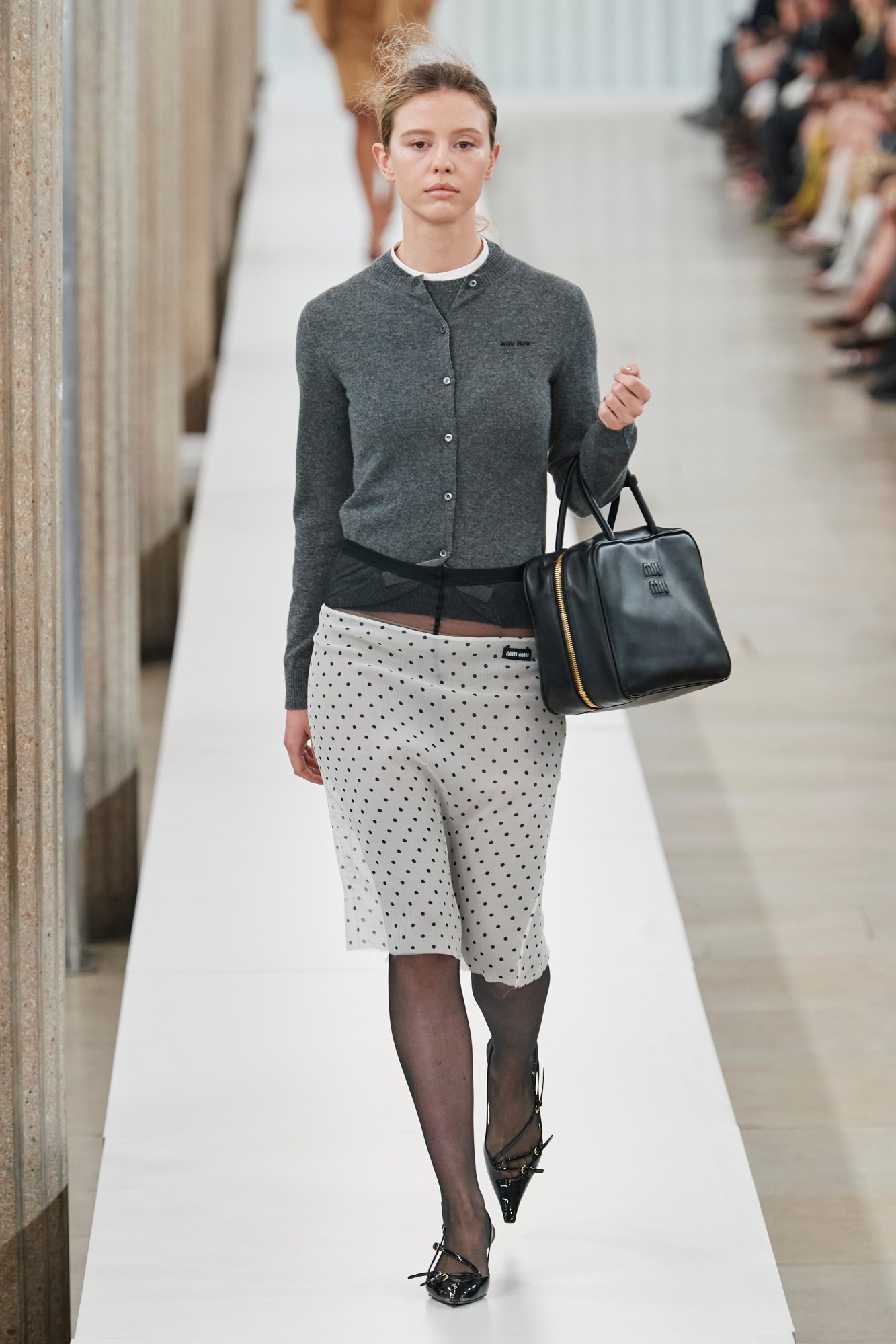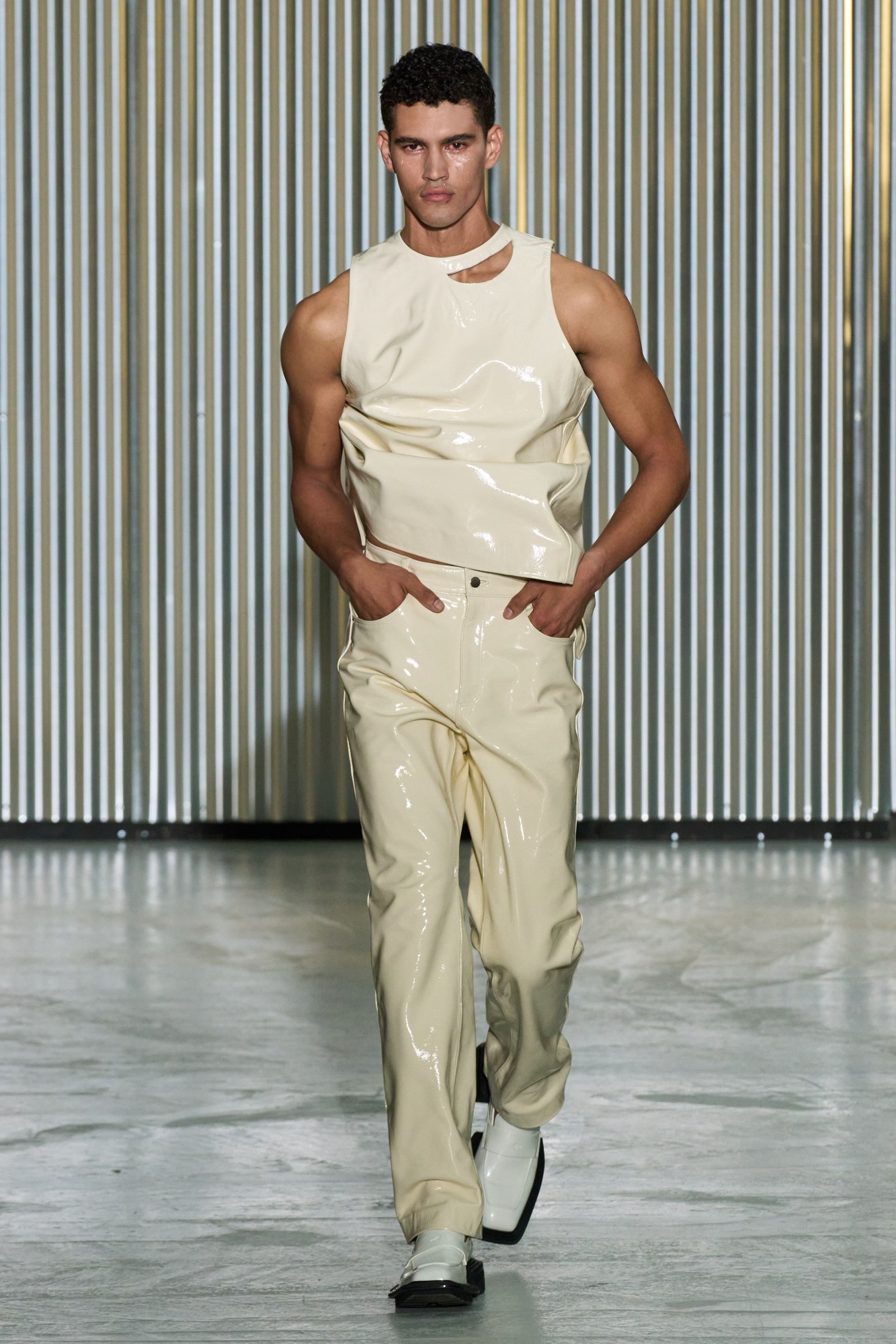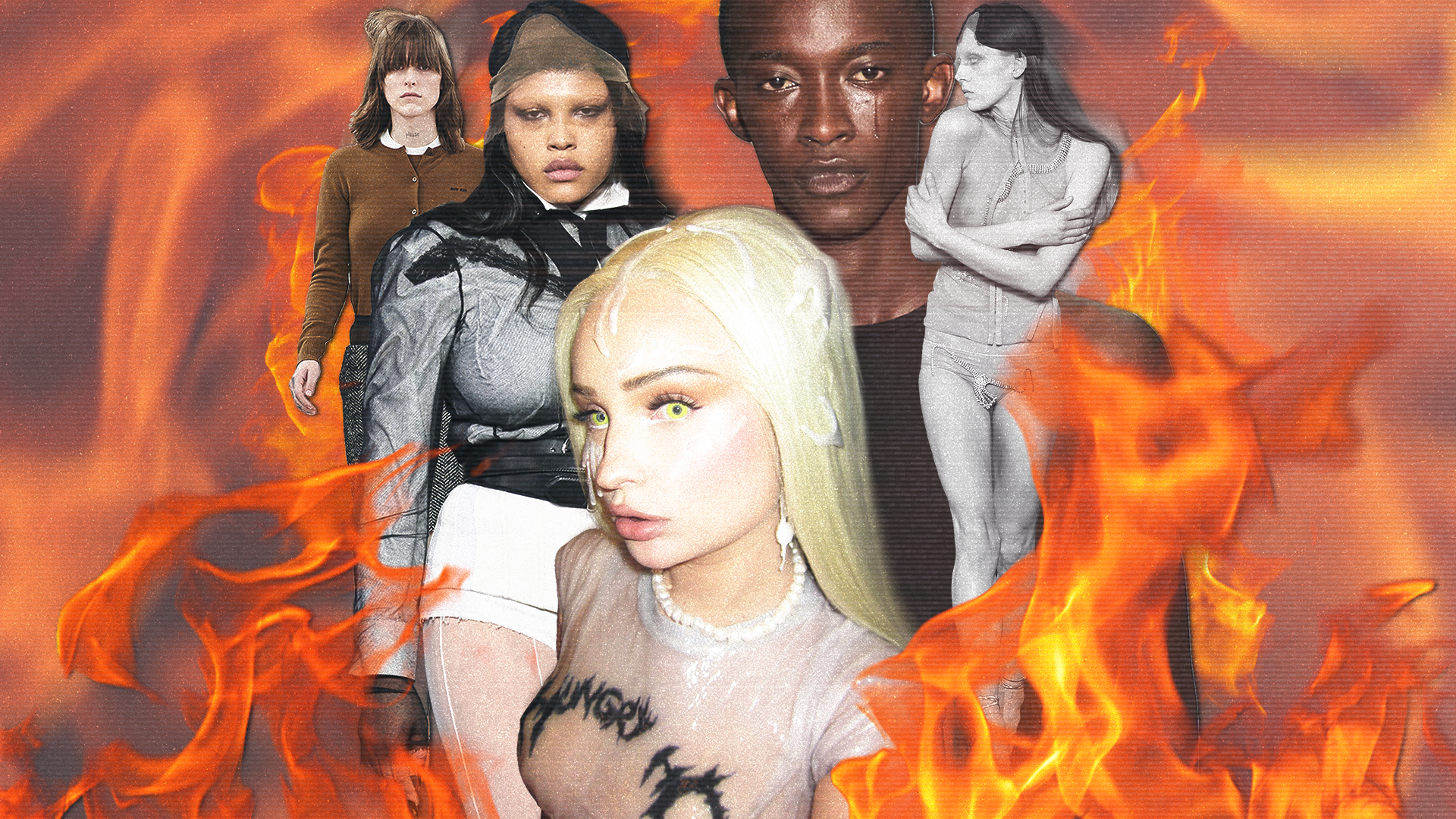“Sometimes I enjoy the walk of shame more than the sex itself,” a friend said recently. Perhaps it’s a kind of humiliation kink; maybe a religious upbringing rearing an inescapable sense of Christian guilt. Maybe they only feel power over that while walking past unsuspecting churchgoers at 10am on a Sunday morning in last night’s slutty clothing; or maybe it’s just that they need to find better men to have sex with. Nonetheless, they’re certainly not alone in their celebration of being a hot mess – and everyone around you knowing it.
“Messy era”, Charli XCX tweeted recently, fittingly rather messily without context. Other pop stars are being messy boots too, albeit in an openly horny way. On both her own world tour and opening for Taylor Swift’s Era’s Tour, pop star Sabrina Carpenter has been freestyling the lyrics to her song “nonsense” each night to include lines like “he hit so hard I’m walking on a slant-a” and “you say i’m a slut, well if the shoe fits”. Then there is Kim Petras: the leading voice of the slutpop movement took to the stage this week in a wet-look Liza Keane t-shirt adorned with “hungry hole” on the front and prosthetic cum dripping from her face and hair. Perhaps it was a nod to The Idol; the provocative, sleazy show du jour, that opened with a scene wherein Lily-Rose Depp’s Jocelyn – lingerie-clad and kneeling in a room strewn with the accoutrements of a debaucherous party the night before – is being convinced to make an album cover of a non-consensually leaked photo of her face covered in cum.
Regardless of how active your sexual life actually is, the aesthetics of sluttiness seem to have had a boom recently. In the summer of 2022, the first summer post-lockdown, we found ourselves liberated of the collective isolation inside – no longer only seeing each other from the shoulders up. Many, then, decided to embrace their sexuality on main, more than ever before. In the year since, this culture has morphed with the TikTok-led indie sleaze revivals of messy, back-combed hair, half-dressed, smeared-makeup and puffy-eyed looks of the early hours; hangovers, vulnerability, club stamps and wristbands worn openly on wrists. But this sexuality is more nuanced than that of the late aughts to early-2010s era – we’re eschewing shame in response to our current cultural and political situation.
The aesthetics of this sentiment have popped up on many a recent runway, but no designer is expressing it quite as openly as Dilara Findikoğlu. “I feel strangled with modesty, I hate modesty, I want to destroy it,” she told Vogue at her SS23 show; a presentation of sheer mesh garments reminiscent of Renaissance paintings of Eve – the fallen first woman (who, according to Biblical scripture, first brought shame into the world) – ripped-up Union Jack dresses and mens’ jackets dragged slowly along the floor.
For her campaign for the same collection, the Istanbul-born, London-based designer had a model running through the streets of Paris in a structured bra, corset and mini skirt, beige suit in hand, like she’d only just woken up from a night out and has grabbed her dry cleaning on her way into work. In one image she has her thumb out, ready to hitchhike home in a pair of fishnets and daisy dukes. In another, entitled “exhibition in Paris”, she sits at a bus stop by the Louvre, butt in a pair of thonged denim pants, pressed against the shelter glass. These themes continue into the AW23 show too, where models in the tatters of going-out garms, lingerie and even a floral bridal gown wandered around an old church seemingly lost, intoxicated and frightened as the sound of raindrops and wind accentuate uncomfortable elements of the situation.
Dilara’s women find power and strength in the mess of sexuality and disorderly conduct” while they may at times be vulnerable or anxious, the onus of the shame and discomfort is turned onto the viewer. It’s most notable in one campaign image, that sees a model half-dressed and posing provocatively on a park bench, the old man next to her awkwardly looking away and covering his eyes. This public messiness and “indecency” is presented as an act of defiance in our current society, one where conservative voices are increasingly realising that they can shame businesses into rolling back their inclusion of queer, trans and non-binary people and sexually-empowered women. Where leading political voices are creating so-called culture wars around drag queens and gender non-conforming people, presenting their sexuality, or even just their existence, as dangerous. Or they are actively destroying hard fought for rights, such as Roe v. Wade.

Other designers are playing on this too. Miu Miu AW23 had Ethel Cain, Mia Goth and Emma Corrin each half-dressed in sultry retro office attire, together with dishevelled hair as if fresh from a corridor tryst. The collection uses a war-time pallette, mixing buttoned-up cardis with an apparent lack of pants, sheer knee-length polka dot dresses and visible tights peering out from the top of low-rise pencil skirts; all hinting at the implication that no matter how hard figures try to send women’s rights and autonomy back to the mid-twentieth century, that doesn’t mean they, and their sexuality, will conform.
There’s also Paolo Carzana and Louis Gabriel Nouchi, who’ve both recently played with similar ideas of shame within masculinity and queerness. “It’s mainly related to this idea that everything I was ashamed of as a kid is now my strength,” Paolo said after his AW23 show, called Queer Symphony, where models in distressed clothing walked with heavy shadow-structures looming over them. Rather than a symbol of fear, they created the illusion of a protective guardian angel. Meanwhile, at LGN SS24, boys in shoulder and hip-exposing partywear one minute, wearing baggy hoodies over suits the next, had tears rolling down their faces in a collection that was a tribute to male emotion, inspired by A Single Man, a novel about queer grief.
Unlike the slut (non-practicing) vibes of last summer, this aestheticisation of messiness – of crude sexuality, openly crying and seeming distressed – is based within a certain level of reality. It’s an unashamed, hyperbolised projection of the aftermath of a social revolution: a rejection of modest female sexuality, or heteronormativity, or strong, silent masculinity. There are of course the rebellious implications of it, but it’s also just thrilling to strut through the streets, the centre of attention as you defy the strictures of what is publicly acceptable; to shock audiences with fake cum in your hair, or to sing about how much dick you’ve been getting on tour. It’s main character energy. It’s iconic. It’s deeply, deeply delulu. And very of its time.



